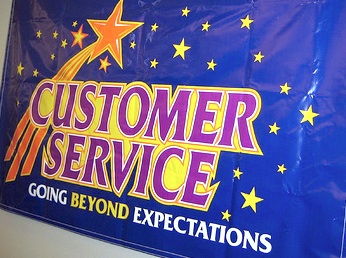Customer Service Is Bad Because You Already Said Yes
In this week’s New Yorker, James Surowiecki takes a brief look at customer service in America these days, and offers up some theories to explain why it sucks. Most of it is stuff you’ve probably already seen: it’s a cost center and therefore an attractive target when cutting expenses; bargain pricing makes it impossible; current attempts to make it more “efficient” just make it worse. But the real problem, he says, is that maybe companies are too concerned with the customers they don’t have.
The real problem may be that companies have a roving eye: they’re always more interested in the customers they don’t have. So they pour money into sales and marketing to lure new customers while giving their existing ones short shrift, in an effort to minimize costs and maximize revenue. The consultant Lior Arussy calls this the “efficient relationship paradox”: it’s only once you’ve actually become a customer that companies put efficiency ahead of attention, with the result that a company’s current customers are often the ones who experience its worst service. Economically, this makes little sense; it’s more expensive to acquire a new customer than to hold on to an old one, and, these days, annoyed customers are quick to take their business elsewhere. But, because most companies are set up to focus on the first sale rather than on all the ones that might follow, they end up devoting all their energies to courting us, promising wonderful products and excellent service.
“Are You Being Served?” [The New Yorker]
Want more consumer news? Visit our parent organization, Consumer Reports, for the latest on scams, recalls, and other consumer issues.


